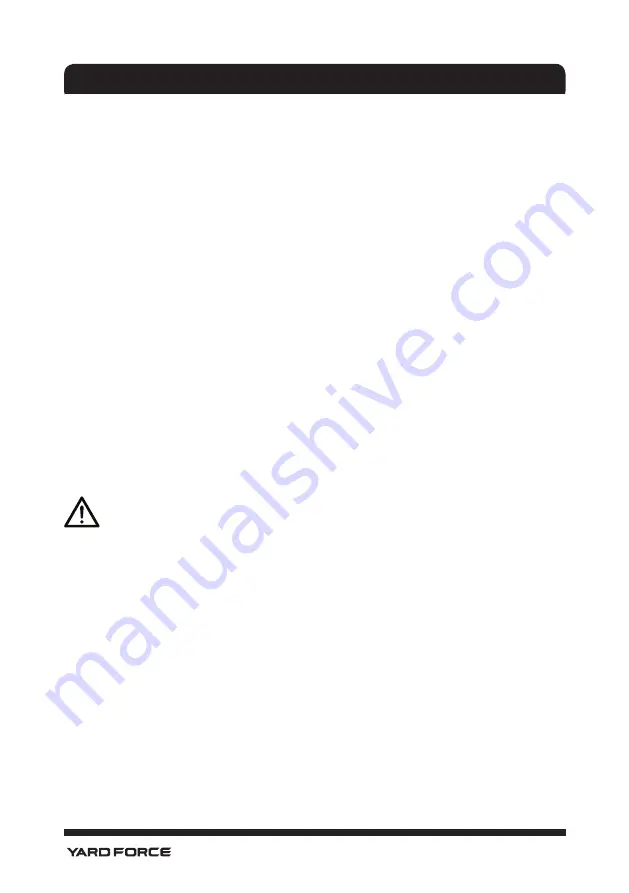
7
3. Do not expose power tools to rain or wet conditions.
Water entering a power tool will increase the risk of
electric shock.
4. Do not abuse the cord. Never use the cord for carry-
ing, pulling or unplugging the power tool. Keep cord
away from heat, oil, sharp edges or moving parts.
Damaged or entangled cords increase the risk of
electric shock.
5. When operating a power tool outdoors, use an ex-
tension cord suitable for outdoor use. Use of a cord
suitable for outdoor use reduces the risk of electric
shock.
6. If operating a power tool in a damp location is un-
avoidable, use a residual current device (RCD) pro-
tected supply. Use of an RCD reduces the risk of
electric shock
NOTE:
The term “residual current device(RCD)” may
be replaced by the term “ground fault circuit interrupt-
er (GFCI)” or “earth leakage circuit breaker(ELCB)”
Personal safety
1. Stay alert, watch what you are doing and use com-
mon sense when operating a power tool. Do not use
a power tool while you are tired or under the influ
-
ence of drugs, alcohol or medication. A moment of
inattention while operating power tools may result in
serious personal injury.
2.
Use personal protective equipment. Always wear eye
protection. Protective equipment such as dust mask,
non-skid safety shoes, hard hat, or hearing protection
SAFETY INFORMATION
Содержание LT G33A
Страница 2: ......











































